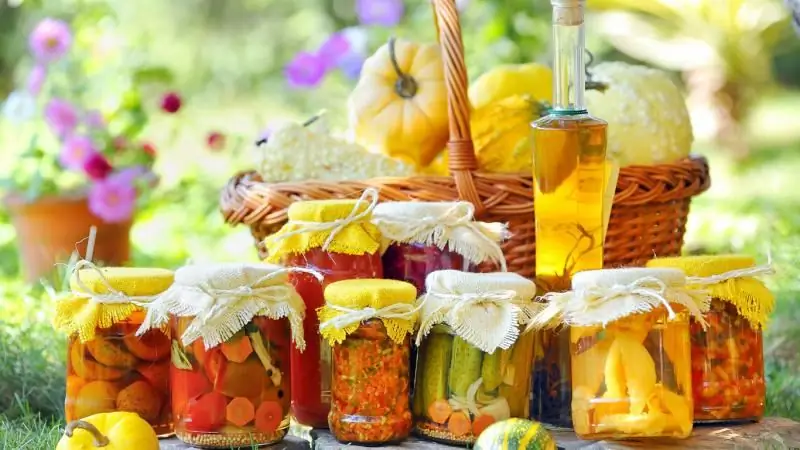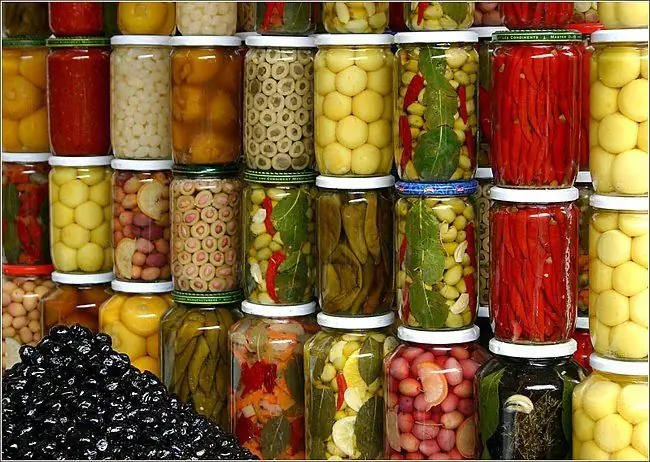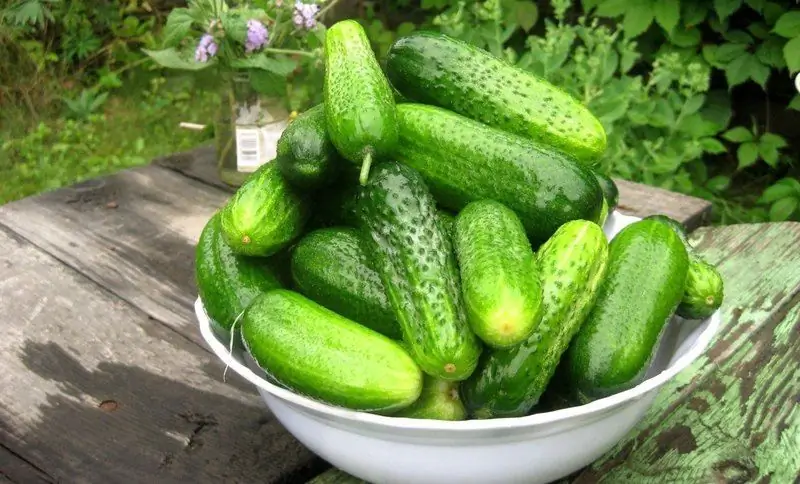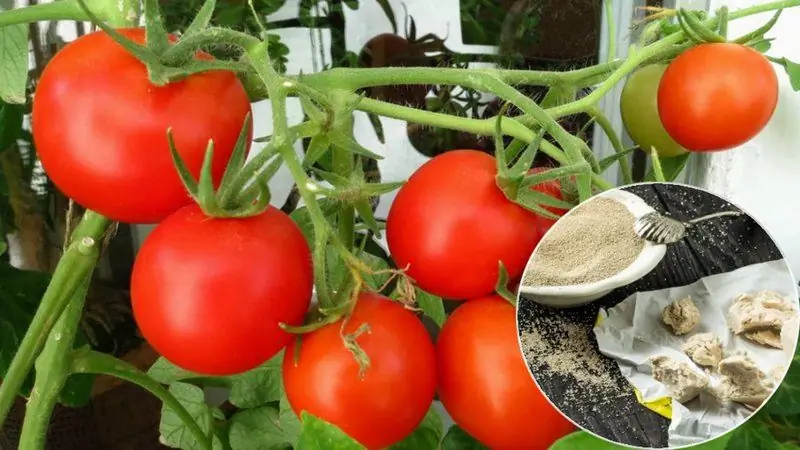
Table of contents:
- Author Bailey Albertson albertson@usefultipsdiy.com.
- Public 2023-12-17 12:53.
- Last modified 2025-01-23 12:41.
Why cans with twists explode and how to deal with it

There are many nuances in the art of home preservation. Unfortunately, it's not uncommon for glass jars of supplies to explode. This negates the efforts of the hostess and leads to a waste of the family budget. Having understood the causes of the unpleasant problem, you can save homework from such an unenviable fate.
Why home canned cans explode
Most often, in cans with blanks that can explode, the brine becomes cloudy. This is the first sign that something is wrong with the canned food.
The main causes of damage to supplies are:
- non-observance of the rules for sterilizing cans and lids;
- violation of the sequence of stages of conservation;
- improper product preparation;
- cracks on the neck of the glass container, as a result of which air penetrates under the lid;
- insufficient purity of the starting product.

It is strongly discouraged to use homemade canned food from exploded cans
What canned food explode more often
Many people know in practice that supplies with cucumbers are more prone to spoilage. This is due to the fact that inside these vegetables there are cavities that contain air. This air can contain bacteria that cause fermentation.

Small, strong and fresh vegetables without internal cavities are suitable for blanks
The composition of the marinade also affects the risk of a can explosion. If there is too little vinegar or citric acid in the brine, the glass container will inevitably become cloudy and explode.
For this reason, some housewives add aspirin to the blanks. This drug acts as a disinfecting antibiotic that prevents the development of bacteria. Yes, this method is effective: according to statistics, supplies with aspirin explode less often. Another question is how safe this ingredient is for health.
Ways to avoid spoiling your winter supplies
In order to reduce the risk of cans explosion to zero, you need to follow the following tips:
-
If possible, preserve vegetables on the first day after removal.

Fresh tomatoes This recommendation is due to the fact that this way the air will not have time to penetrate into the cavities inside the vegetables.
-
If you use purchased vegetables for spins, be sure to soak them in cold water for 2-3 hours before preserving.

Soaking cucumbers before preserving When soaking, water will fill the voids inside the vegetables
-
Add table salt to the water to sterilize the cans. The proportions are as follows: for 1 liter of water 400 g of salt.

Salt The fact is that salt water boils at a higher temperature, which guarantees a thorough sterilization of the container.
-
Do not heat the vinegar marinade in open jars, as evaporation may reduce its concentration.

Roll up cucumber jars The best option for reliable preservation is when vinegar is added directly to the jar before rolling.
-
Wash your vegetables very thoroughly.

Washing vegetables before preserving The cleaner the vegetables are before being rolled into jars, the more chances they will be stored for a long time.
-
Turn the twist jars upside down in the hot marinade.

Inverted Cucumber Jars This technique will help to further sterilize the lids.
- Wash your hands with soap and water at every stage of preservation!
-
Do not reduce the amount of salt and sugar indicated in the recipe.

Salt and sugar Salt and sugar are also preservatives; if they are not enough, the shelf life of the workpieces will be significantly reduced
Before mastering the tricks of home preservation, I often came across the fact that glass jars with cucumbers and tomatoes exploded. Sometimes the contents became cloudy at first, but more often a sharp pop was heard from the closet. Later I realized my mistakes, made conclusions and now I sterilize the jars and lids more carefully. And I always soak vegetables in cold water. It's amazing how this simple rule works effectively.
Carefully follow the recipe and monitor the purity of the products and all the materials at hand so that in winter you can pay tribute to spicy pickles and sweet compotes. Compliance with simple rules will allow you to preserve winter supplies for a long time.
Recommended:
What Can Be Prepared For The Winter: Recipes For Preparations From Mushrooms, Cabbage, Tomatoes, Cucumbers And Other Vegetables + Video

Recipes for preparations for the winter from mushrooms, cucumbers, tomatoes, bell peppers. Salads, cuts, marinades, essential foods, useful tips
Why Cucumbers Have Pimples And Why Are They Needed

Why. Cucumbers are smooth and pimpled. Why does a cucumber need pimples. Which cucumbers are best for pickling, and which ones for salad
Feeding Tomatoes And Cucumbers With Yeast: Effective Recipes And Reviews

The use of yeast for garden crops, the need for feeding. Fertilization scheme, dosage, recipes for dressings for cucumbers and tomatoes. Gardeners reviews
Boric Acid Spraying For Tomatoes And Cucumbers

Why do cucumbers and tomatoes need boric acid? When and how top dressing is applied, spraying is carried out
Eggplant In The Oven: Quick And Tasty Recipes With Tomatoes And Cheese, Minced Meat And Other Ingredients

How to cook oven baked eggplant. A selection of step-by-step classic and original recipes
